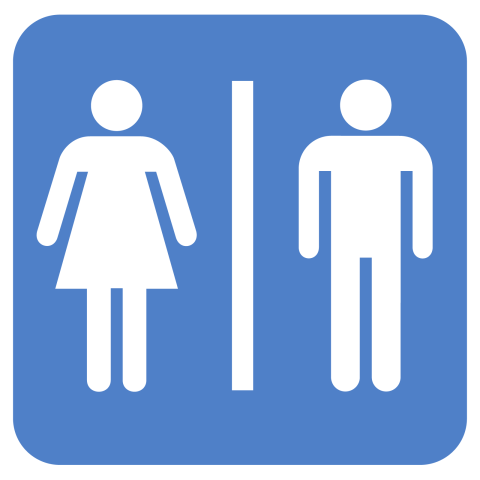10 Small But Crucial Things You Have To Pay Attention To While Learning German
By Erica Sunarjo
December 28, 2018 • Fact checked by Dumb Little Man

The German language is getting more and more popular among enthusiastic language learners all over the world. People learn it for different reasons — work opportunities, hobby, family relations, etc. Whatever your reason is, we salute your decision to become richer by learning a new language.
If you decided to learn German, you’ve probably heard it’s not the world’s easiest language. There are several aspects of it which might intimidate you — grammar, pronunciation, compound nouns, you name it.
And because of that, we prepared this handy guide for you. Below, we’ll discuss 10 highly important things you need to pay attention to while learning German on your own. These tips and tricks will make the entire learning process much easier for you. Hopefully, this will help you avoid making beginner’s mistakes and ensure you start out ready and self-assured.
Capitalized Nouns
Let’s kick things off with a simple and straightforward rule: all nouns in German are capitalized.

Whether it’s a personal name, a thing or a place, you write the first letter in capitals. In English, you only capitalize proper nouns.
Consider this sentence:
Ein Glas Wasser, bitte. A glass of water, please.
In this sentence, common nouns “water” and “glass” have the first letter capitalized.
Remember, anything that you can touch, smell, hear, see, feel or think about is capitalized. From abstract ideas to names of places, press that uppercase command. Make sure to memorize this rule and implement it as soon as you start writing in German.
Vowels’ Length
If you haven’t been to school for a while, you may have forgotten what the hell vowels are. In most languages, speech sounds are divided into vowels and consonants.
In German (like in English) A, E, I, O and U are called vowels. Everything else is a consonant. However, in German, vowels can be a little tricky at first because a vowel in German can be short or long.
Here’s how to determine the length of the vowel:
Short
A vowel is short when followed by a consonant cluster:
Short e:
Geld (money)- similar pronunciation to “scent”
Long
A vowel is long in all the other cases.
Long a:
fahren (to drive)- similar pronunciation to “charm”
Proper pronunciation of the vowels can make a huge difference and often influence the meaning of the word. It’s definitely something to consider in order to nail that German pronunciation.
Der, Die, Das

In German, articles are different for each of the three genders. Here’s what you need to know:
- Der is for the masculine gender, like der Winter (winter) der Vater (father) der Montag (Monday)
- Dieis for the feminine gender, such as die Mutter (mother) die Sängerin (singer) die Lampe (lamp)
- Dasis for neutral nouns, like das Blau (white) das Auto (car) das Museum (museum)
Be aware that gender differs for each word from language to language. If something is feminine in your native language, it doesn’t mean that it’s the same gender in German.
To put it simply, you need to learn new words along with the article. That will help you memorize the gender of the word and know how to use it properly.
Umlaut
We’re back to vowels. Have you heard of the umlaut?
In German, it’s represented by two dots placed above the vowels A, O, and U, turning them into Ä, Ö, and Ü.
An umlaut changes the pronunciation of a vowel completely, making a whole new sound. That means you need to know how to say the words with an umlaut on the vowel.
Pronunciation similar to:
- schön (beautiful) earn
bird - Äpfel (apple) end
apple - Üben (practice)
No corresponding sound in English
Try saying “ee” like in “see” but place your mouth like you want to say “oo” like in “moon”.
Of course, there are exceptions to every rule, and you can’t get a hold of this by only reading and studying. In time, you will develop the intuition for proper pronunciation.
German pronunciation isn’t as simple as you thought, right?
Sentence Structure
Sentence structure is important. You have to know how the subject, object, and other parts of the sentences that go with one another.
Good news: it’s the same as in English.
Subject+Verb+Object
Take a look at this simple example:
I have a ball.
Ich habe einen Ball
Here’s a more complicated one:
I want delicious ice cream with chocolate chips.
Ich möchte ein leckeres Eis mit Schokoladenstückchen.
Diphthongs
The struggle with the vowels continues as we introduce the final touch: diphthongs.
When you see a cluster of vowels in German, you need to know exactly how to pronounce them. Luckily, there are rules to determine this.
Take a look:
au = Haus (house)
ow = brown
ou = noun
äu = Häuser (houses)
oy = boy
ai/ei = (egg)
i = wine
eye = eye
ie = Liebe (love)
ee = week
These are the basic ones and there are other combinations which you’ll eventually learn. Use these as a starting point and go from there.
Conjunctions
Conjunctions are the words we use to connect clauses or sentences, such as but, if, because, and etc. In German, the conjunctions can mess up the sentence structure we’ve discussed above.
Take a look at what you have to know:
• Coordinate conjunctions don’t change the position of the verb.
Here are a couple of examples:
aber denn und oder
but then and or
• Subordinate conjunctions push the verb on the last place of the clause.
weil wenn bis nachdem
because if until after
Example:
• I want to eat. I am hungry. – Ich will essen. Ich bin hungrig.
• I want to eat because I am hungry. – Ich will essen, weil ich hungrig bin.
The subordinate conjunction “weil” made “bin” go to the end of the clause.
• Compound conjunctions are formed by two words:
weder noch anstatt zu entweder oder sowohl als auch
neider nor instead of either or both and
Unbelievably Long Words
The German language is the proud owner of some of the most ridiculously long words in the world. This is thanks to the compound nouns they are prone to creating.
Don’t be surprised if you see a 30 letter word!
Take a look at some of these examples:
- Freundschaftsbezeigungen- demonstrations of friendship
- das Meerschweinschen- guinea pig
- Schneeeule- snowy owl
- Nahrungsmittelunverträglichkeit- food intolerance
Words You Already Know
We have some encouraging news: since English and German are both West-Germanic languages, there are some rather similar words.
That means you already know a ton of German words. This gives you a wing to the back and helps you get a grip of the language.
Here's a list:
- Eisberg- iceberg
- Apfel- apple
- Album- album
- Compute-r computer
- Evolution- evolution
- Tennis- tennis
- Hunger- hunger
- Million- million
Pronunciation

German is considered to be one of the” rough-sounding” languages to most non-native speakers. If your native is English, you’ll probably agree with this.
In order to master a language, you need to listen to it.
Adopting the melodies and sounds of a language isn’t easy. In order to adopt the sound of German and start sounding more like a native, you have to listen to native speakers.
Use all sources that you can:
• YouTube
• movies
• music
• interviews
• talk shows
Surround yourself with Germans every day and start repeating everything you hear.
Where To Start?
If you’re starting from scratch and have no previous knowledge of the German language, it’s best to start with:
The alphabet
German alphabet has 26 letters and just like in English, you can learn it through poems, images or even YouTube videos. You need to get the hang of it as soon as possible so that you can continue learning without any problems
Expanding your vocabulary
This is definitely something you can do on your own, regardless of any lessons you might be taking or tutoring guidance. The internet is full of resources that can help you learn. Assign yourself a task, like 10 new words each day. Imagine where that takes you in a month or two.
Online courses

You can try learning German on your own. There are online beginners’ courses that you can take and see where that takes you.
Study buddy
Learning might be more efficient if you have someone to share it with. Try getting a friend or a colleague on board and work together on your German skills.
Native speaker
Try finding a native German speaker who would like to talk to you every now and then, and help you practice.
Conclusion
Every language is hard to learn, especially if you start learning it as an adult. However, nothing is impossible so don’t let anyone break your spirit. Hard work and good preparation give the best results. Make sure to work tirelessly, study regularly, and practice like crazy.
We’ve given you a head start. Make sure to memorize these small but crucial details about learning German. It will help you achieve progress faster and improve your skills in no time.
Erica Sunarjo
Erica Sunarjo graduated from South Texas College. She used her knowledge to make a difference in the realm of business copywriting and invested heavily in traveling and language learning. At present, Erica is a translator at The Word Point


